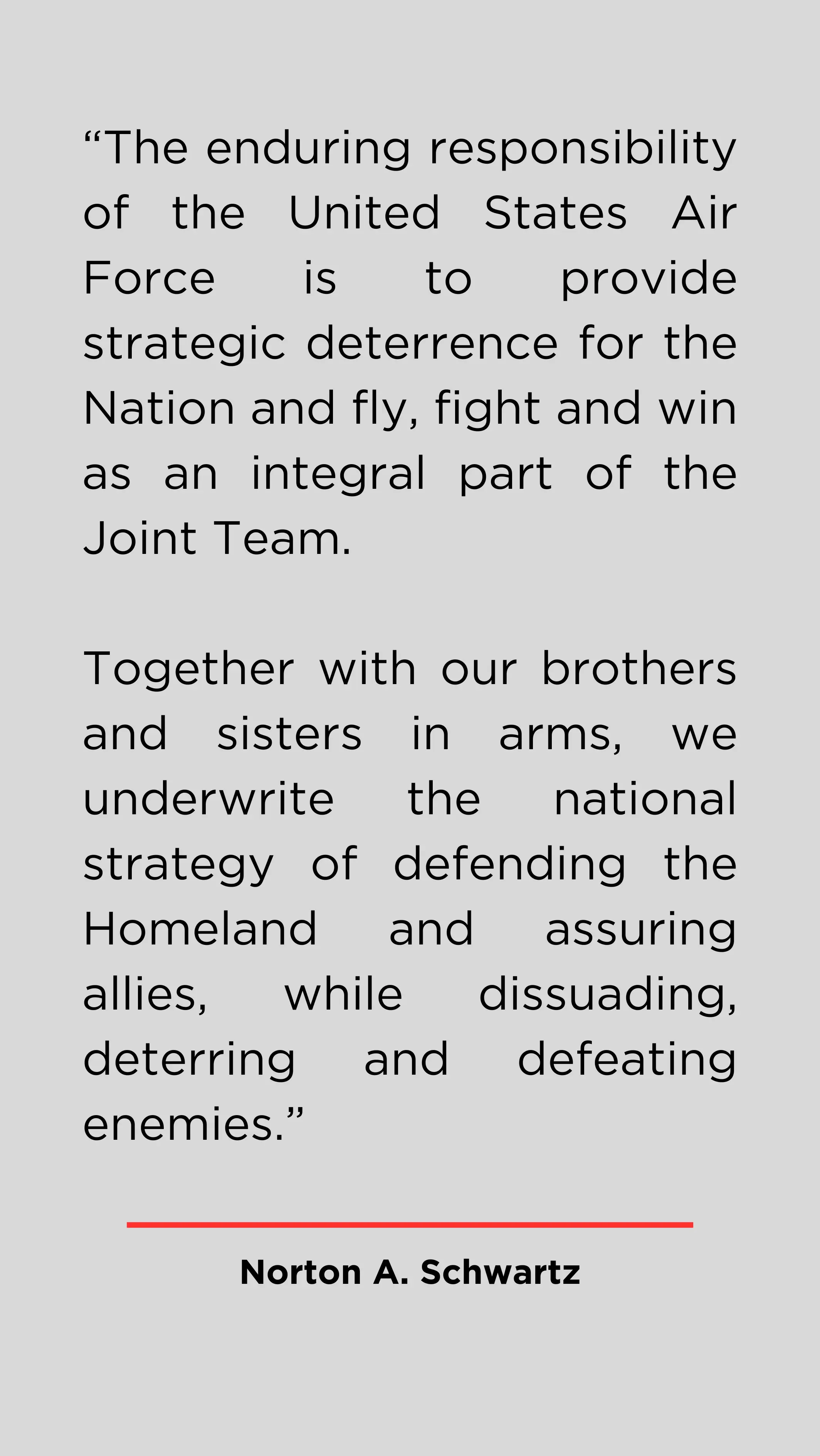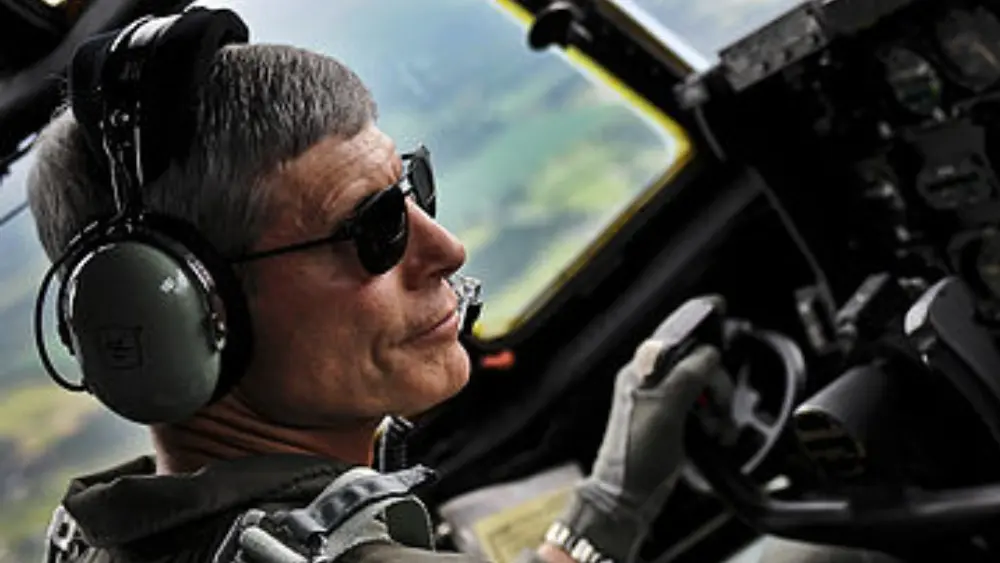Norton A. Schwartz, born on December 14, 1951, emerged as a distinguished military leader, strategist, and aviator known for his pivotal role in guiding the United States Air Force through the complexities of the 21st century. With a career marked by dedication to service and a commitment to modernizing the Air Force, Schwartz left an enduring impact on U.S. military capabilities.
Early Life and Education
Born in Toms River, New Jersey, Norton Schwartz’s early life was characterized by a keen interest in aviation. Fascinated by flight, he set his sights on a path that would intertwine his passion for aircraft with a commitment to leadership and service. This trajectory led him to the United States Air Force Academy, a renowned institution dedicated to training future Air Force officers.
At the Air Force Academy, Schwartz’s academic journey became a crucible for honing not only his intellectual capabilities but also his leadership skills. The academy’s rigorous curriculum and emphasis on character development prepared him for the challenges that lay ahead in his military career. This early phase of education laid the foundation for his future accomplishments and instilled in him the values of discipline, duty, and dedication that would define his service to the nation.
Norton A. Schwartz: Aviator and Combat Experience
Commissioned as a second lieutenant, Norton Schwartz embarked on a distinguished career that soared through the skies. His role as a pilot and later as a master navigator showcased not only his technical proficiency but also his adaptability in the dynamic field of aviation. These early assignments laid the groundwork for a career marked by a deep understanding of air operations and strategic planning.
Schwartz’s combat experience unfolded during the challenging conditions of Southeast Asia in the midst of the Vietnam War. In this theater, he faced the complexities and dangers of aerial missions, demonstrating not only skill but also resilience in the face of adversity. These formative experiences in combat not only solidified his expertise but also instilled in him a profound understanding of the real-world implications of military strategy and the importance of effective leadership in demanding situations.
Strategic Leadership: Rising through the Ranks
Norton Schwartz’s rise through the ranks of the United States Air Force underscored not only his exceptional skills as an aviator but also his strategic acumen. With each promotion, Schwartz demonstrated a keen ability to navigate the complexities of modern warfare. His ascent through command positions and into higher leadership roles was marked by a forward-looking approach, integrating cutting-edge concepts of warfare with a comprehensive understanding of the rapidly evolving global landscape.
As he assumed leadership positions, Schwartz became recognized for his capacity to adapt military strategies to the challenges posed by emerging technologies and evolving threats. His strategic leadership style emphasized the need for innovation, readiness, and a proactive stance in addressing the dynamic nature of modern conflicts. This commitment to staying at the forefront of military capabilities contributed to his reputation as a visionary leader within the U.S. Air Force.
Norton A. Schwartz: Chief of Staff of the United States Air Force: A Pinnacle Leadership Role
Norton Schwartz’s appointment as the Chief of Staff of the United States Air Force in 2008 marked the pinnacle of his illustrious military career. In this influential role, Schwartz faced the complex challenges of leading the Air Force through a transformative period characterized by technological advancements and evolving global security landscapes. His tenure as Chief of Staff required a strategic vision to navigate the intricate interplay between emerging technologies, geopolitical shifts, and the evolving nature of air and space warfare.
Schwartz’s leadership during this time reflected a commitment to ensuring the Air Force remained at the forefront of technological innovation and strategic preparedness. His focus extended beyond traditional military considerations, recognizing the interconnectedness of air and space capabilities in addressing contemporary security challenges. As Chief of Staff, Schwartz played a crucial role in shaping the Air Force’s priorities, modernizing its capabilities, and adapting its strategies to meet the demands of a rapidly changing world.
Known for in the U.S. Military: Air Force Modernization and Global Integration
Norton Schwartz’s legacy in the U.S. military is notably tied to his steadfast commitment to modernizing the Air Force. Recognizing the rapid evolution of technology and the changing nature of warfare, Schwartz championed initiatives to enhance the Air Force’s capabilities. Embracing advancements in cyber technology, unmanned systems, and precision weaponry, he positioned the Air Force as a technologically advanced and adaptive force capable of meeting the demands of contemporary conflict.
Moreover, Schwartz’s emphasis on global integration underscored the interconnected nature of modern security challenges. Furthermore, his commitment to fostering international collaboration highlighted the importance of collective action. Additionally, by recognizing the interdependence of global security, Schwartz advocated for a holistic approach to address emerging threats. In addition, his strategic vision prompted a reevaluation of traditional boundaries in understanding and addressing security issues. He worked to strengthen the Air Force’s collaboration with other branches of the military and fostered partnerships with allied nations. By prioritizing joint military operations and international cooperation, Schwartz aimed to ensure the Air Force’s effectiveness in addressing global threats and maintaining a position of strength in an increasingly interconnected and dynamic geopolitical landscape.
Norton A. Schwartz: Strategic Vision: Airmen as Joint Warfighters
Norton A. Schwartz’s strategic vision was characterized by the profound recognition of airmen as joint warfighters, reflecting his understanding of the collaborative nature of modern military operations. Under his leadership, the U.S. Air Force moved beyond a singular focus and embraced a joint perspective, acknowledging the need for seamless integration with other branches of the military. This approach aimed to optimize the collective strengths of the armed forces, fostering a more cohesive and effective joint operational environment.
Moreover, by emphasizing airmen as integral components of joint warfighting efforts, Schwartz elevated the Air Force’s role in national defense. This strategic shift facilitated smoother collaboration across military branches, fostering improved coordination in complex missions. Additionally, it enhanced the overall effectiveness of joint and coalition endeavors. Moreover, the streamlined approach not only resulted in greater efficiency and synergy among diverse units but also contributed to heightened interoperability. Furthermore, this concerted effort led to a more cohesive and integrated operational framework. Additionally, the improved coordination fostered a stronger sense of unity and shared objectives among the participating military branches. Schwartz’s vision contributed to a more integrated and adaptable military force, better positioned to address the evolving challenges of the contemporary security landscape.

Retirement and Continued Service
Following his retirement from the United States Air Force in 2012, Norton A. Schwartz remained an influential voice in national security discussions. Moreover, his extensive experience provided valuable insights. Subsequently, he continued to contribute actively to strategic dialogues. Additionally, Schwartz assumed key advisory roles, further solidifying his impact on the field. Leveraging his extensive experience and expertise, he continued to contribute valuable insights on matters related to military strategy, leadership, and the dynamic landscape of modern warfare. Schwartz’s post-retirement engagements included participating in public forums, providing consultancy services, and sharing his perspectives through various channels. His continued dedication to serving the nation through informed discourse underscored his commitment to the broader ideals of national defense and strategic thinking.
Schwartz’s legacy is deeply intertwined with his transformative leadership during a critical period in the history of the United States Air Force. Moreover, his strategic vision and decisive actions made a lasting impact on the institution. In addition, his ability to navigate challenges with resilience and innovation set a precedent for future leaders. Notably, Schwartz’s impact extended beyond his tenure, shaping the Air Force’s trajectory for years to come. As the Chief of Staff, he navigated the challenges of technological advancements, shifting geopolitical dynamics, and the imperative for joint warfighting capabilities. His legacy transcends his time in service, leaving a lasting impact on the Air Force’s modernization initiatives and its strategy for global integration. Schwartz’s continued service in the realm of national security post-retirement exemplifies a lifelong commitment to the principles that define effective military leadership and strategic vision.








